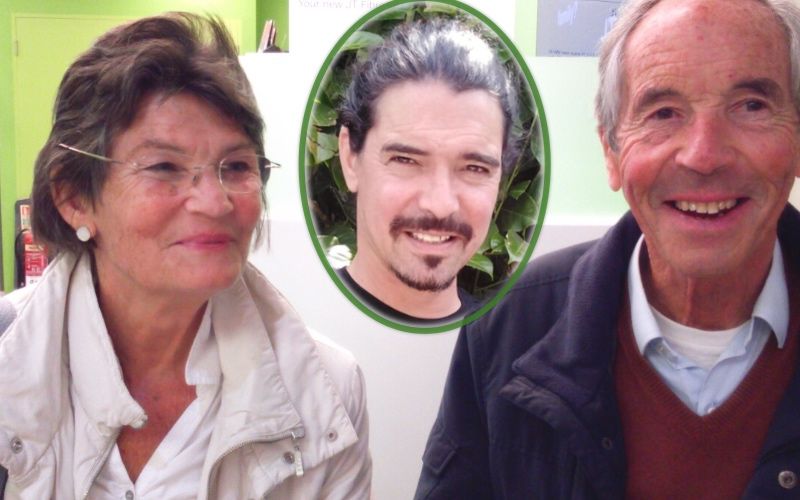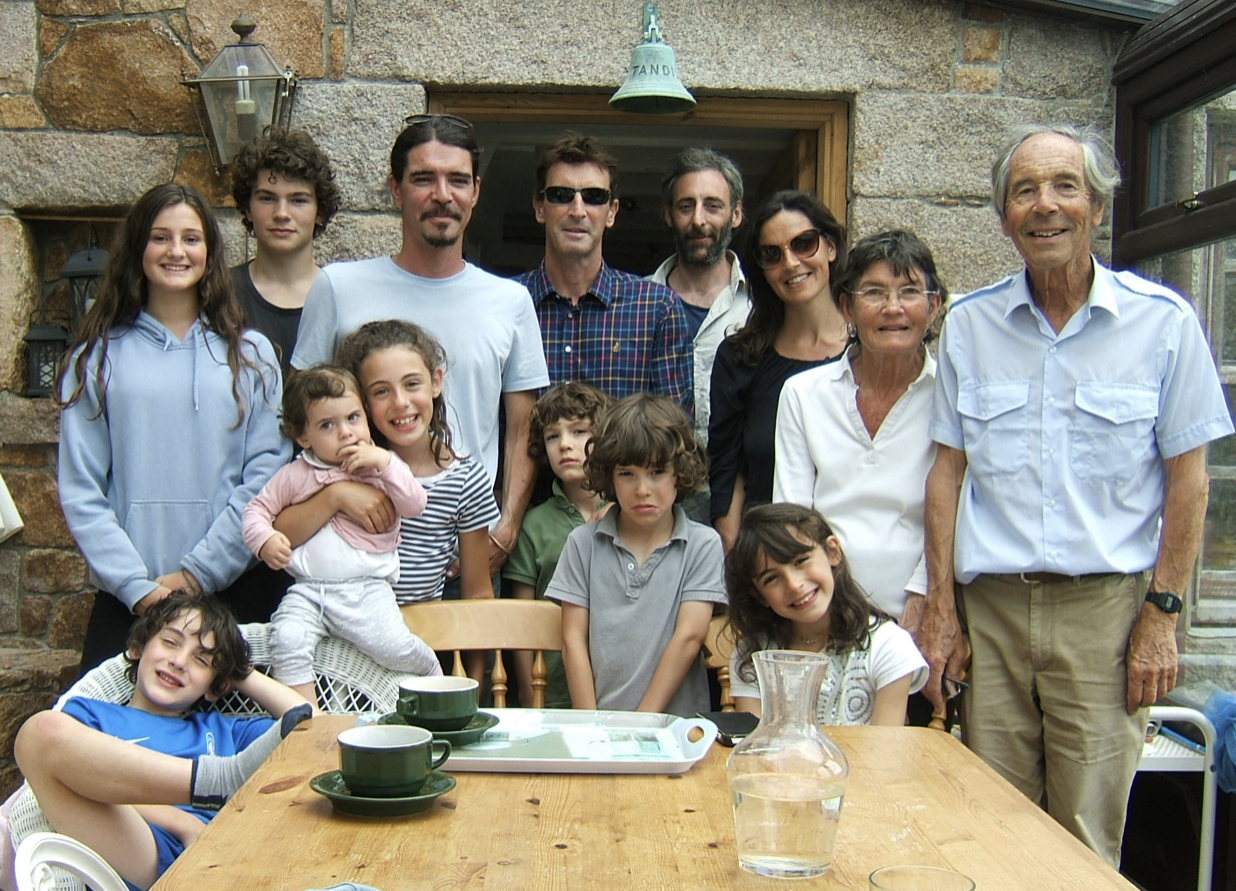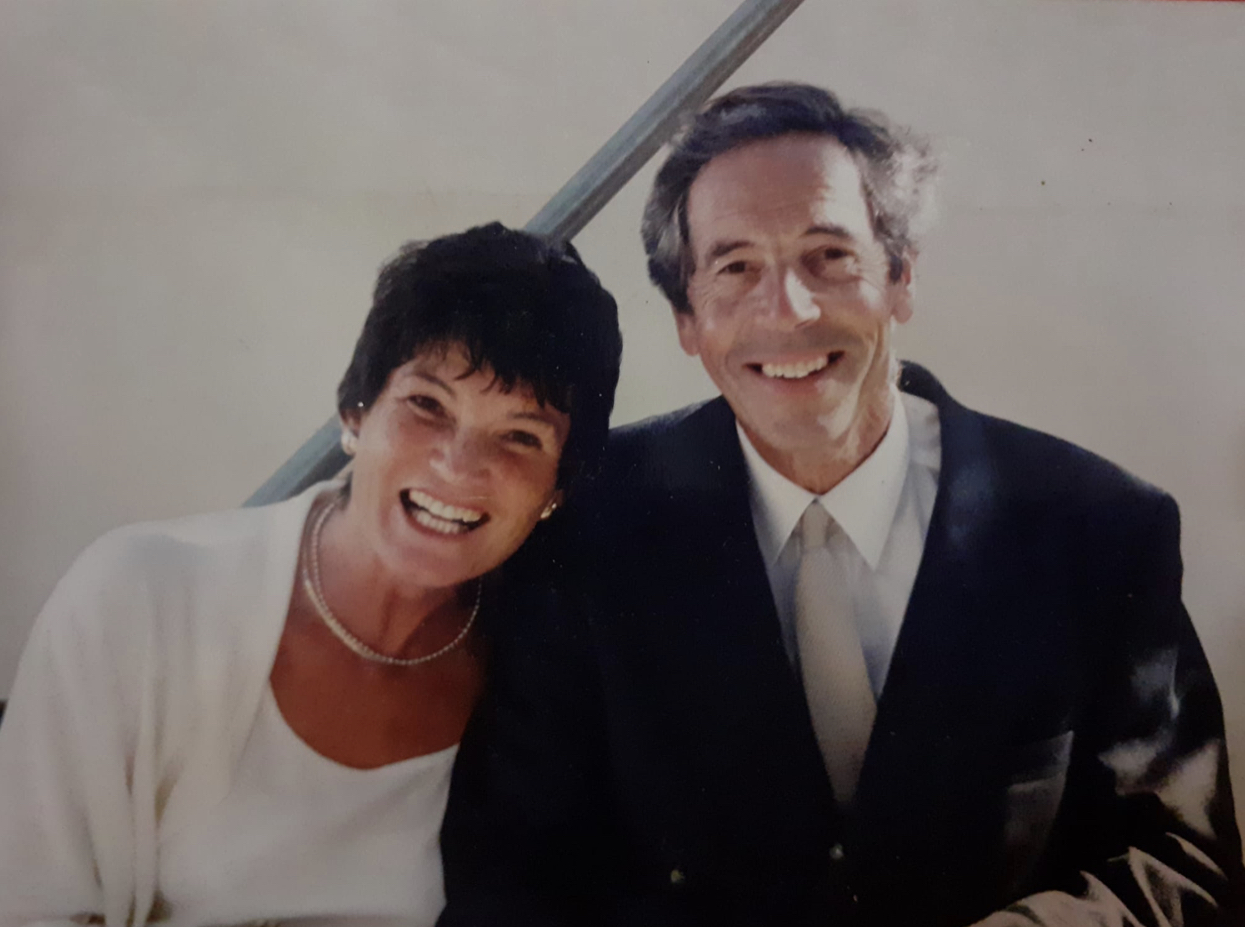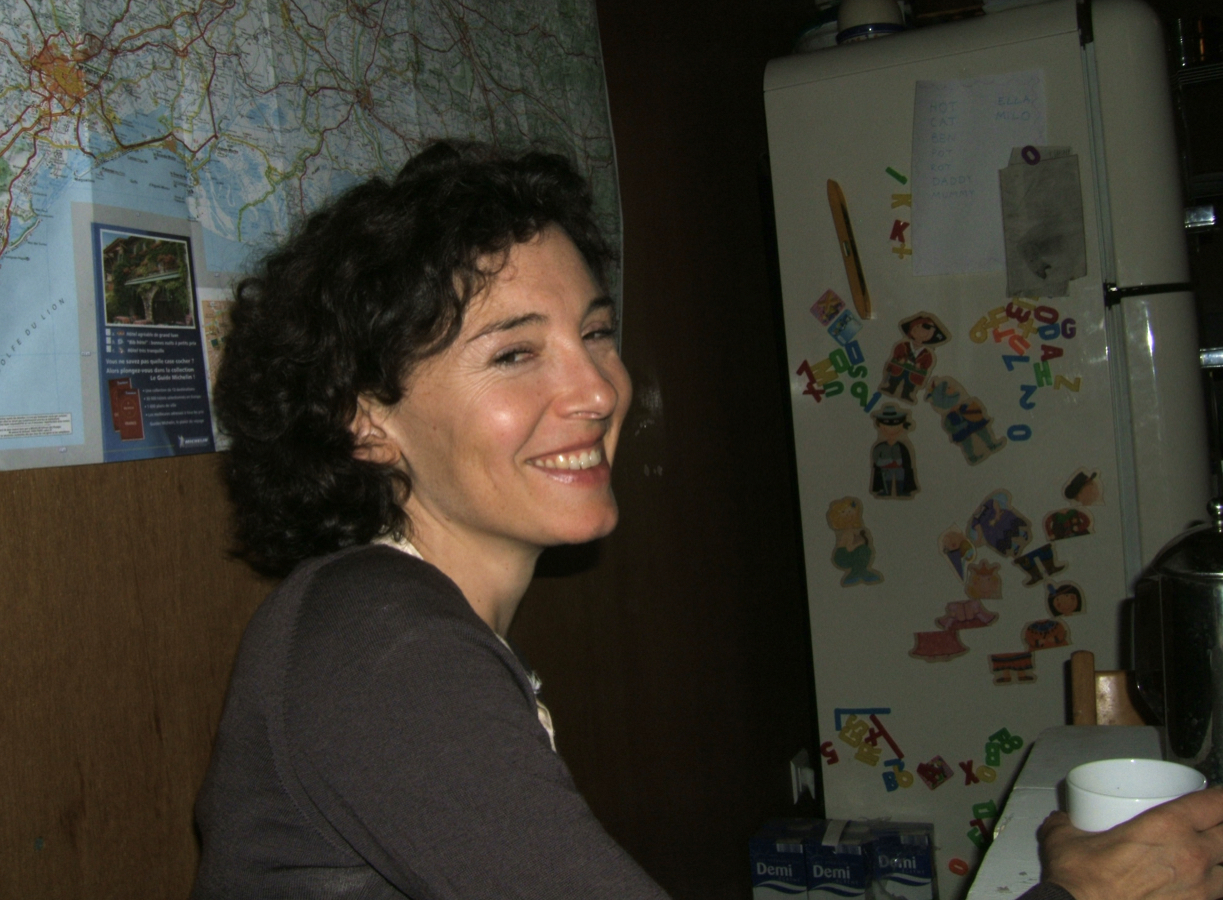


Islander Guy Carnegie and his family have more than enough reasons to want to see the back of 2020. Their year was one of loss, grief and despair; yet it was also one of faith, togetherness and optimism.
As 2020 draws to a close, Bailiwick Express asked Guy to share his story. It is an account that embodies the sadness, frustration and disruption that many Islanders have felt this year - but it also illustrates that, by facing challenges together, goodness and hope can shine through in the darkest of places.
In Guy’s own words:
Annus horribilis’ – I remember smirking at this at Christmas time in 1992, obviously only thinking what an odd time to use a bit of Latin, but in fairness to Her Majesty’s annual speech it memorably summed up her year at that time in a way people wouldn’t forget.
It’s certainly come back to me this month more than once, as I’m sure it has for many on this troubled planet. To put my situation at the time in context leading up to 2020, my wife and I had returned to Jersey the previous year, having spent five memorable years living in Montpellier in the South of France.
Life there is extraordinary and despite expected difficulties at times, had been our best years. A combination of a lack of work for me, but more importantly my mother’s health had brought us back to the Island.
Before this, I had no real plans to ever return to Jersey. I left nearly 20 years earlier and without wishing to offend somehow, I’d always felt a return was a real step back.
So it very much felt as if I was coming back on a specific mission, and that mission was to spend as much time as possible with my Mum (who still very much lived at home but was suffering from Alzheimer’s) and along with my brother Dominic who was already here, help my Dad out as much as I could as he tried to cope with his wife’s decline.

Pictured: The Carnegie family, including Guy (back, third from left), his father Mike (back, far right) and mother Sheila (left of Mike).
I had previously returned for a couple of weeks in October 2017 to allow my Dad to get away and it was only then that the enormity and impact of the disease first struck me.
Despite my Mum still very much getting herself up, holding a conversation and completely recognising me and others, the dynamic of our relationship was completely different. To hear her suddenly talk about rainbows in spoons in the middle of a conversation about something else was really troubling to me.
I also felt a responsibility for her wellbeing that I hadn’t ever encountered before and I struggled throughout the two weeks to keep control of my emotions - not only when alone but more importantly in front of her.
2020 itself didn’t begin well in my household. After several years of trying to start a family, my wife Hannah finally fell pregnant but miscarried on Christmas Eve after only six weeks. We both have a strong faith and tried desperately to find meaning in why something that we so dearly longed for would be given, but taken away so quickly.
Even then though, I remember feeling that I simply already had enough sadness at the time and resolved to battle through it. I think I might even have felt quite proud of myself for remaining positive.
My mother, who had now been suffering from Alzheimer’s for about four years, had recently moved into a care home in the November, but we saw her most days.
You never catch up properly with someone with this disease because they’re no longer there as you know them, or more specifically, how you instinctively know them as part of your own self, being part of a maternal or paternal relationship.
You grab on to those moments when memories do flicker, which are often at random times, or best of all, when a smile breaks out, meaning proper interaction has been achieved and you wonder if perhaps she isn’t as unhappy here in this place as you fear she might be.

Pictured: Guy’s parents, Sheila and Mike, pictured at his sister Alice’s wedding 25 years ago.
I found I dealt with the situation best by seeing my Mum as much as possible even if at the expense of serious reflection on how hard it was at the time, each time.
Coronavirus became quite scary, fairly quickly for my family. Although it’s fair to say Jersey felt pretty safe initially, my sister Alice, her husband and four children were quickly prisoners in their own home in Europe’s epicentre in Bergamo, Italy.
Her updates couldn’t have been more different to ours at the time. While Boris teased the frankly scary idea of herd immunity, hospitals there were bursting at the seams and she needed a ticket to even go to the supermarket on her own.
What was particularly alarming perhaps was that despite their situation, the mayor of Bergamo announced he would be calling his own children back from studies in the UK.
He felt the response here was so inadequate that his children would be safer at home, “even if we are at the centre of the epidemic”.
Britain, he argued, was on the precipice of becoming a more dangerous place than where most pinpoint as the starting point in Europe. Statistically now, he wasn’t far off the mark at all as the two countries sit almost neck and neck behind France.
As a family, our first concern was that we might have restricted access to see my mother, who had now been in the wonderful Beaumont care home for about four months.
Despite this it was still a shock when restrictions came in. I recall visiting her with my Dad one weekend – we had decided to postpone her birthday celebrations on a Saturday until more of us were present.
We saw her and left as normal only to be called that afternoon to say visiting was no longer allowed. My father went suddenly from at least two daily visits to see her to none and it understandably affected him a great deal.
You might know your nearest and dearest simply have to be somewhere for their own good but it doesn’t stop the feelings of responsibility and guilt that come with that decision.
I remember speaking to him on the phone one evening soon after and he said he thought perhaps he’d seen Mum for the last time. “Don’t be silly” I said, earnestly believing that access would be back in a couple of weeks, or a month at most.
She’d had a fall recently but was in reasonable health otherwise. But he had indeed seen her for the last time. She took a turn for the worse about three weeks into lockdown. Initially it seemed to be down to a lack of movement due to her fall, leading to chest complications, but it felt far too soon to suddenly be hearing about emergency doctor call-outs and the dreaded phrase ‘end of life care’.
Her ailments were still something of a mystery – twice I had spoken to doctors that felt she almost certainly had covid. Testing was in its infancy then and despite negative results each time, we heard from the horse’s mouth of accuracy rates between 30 – 50% which in my book is like flipping a coin and settling on whatever lands sunny side up.
Within just one month she was no longer here and she remains one of Jersey’s ‘probable Covid’ statistic. You would think this would be bothersome but actually, either way it doesn’t really matter because she isn’t here anymore.
The day before she died, my wife and I were permitted in to the home to see her, providing we looked like astronauts in masks, visors, gowns, and gloves. I wasn't allowed to touch her skin with my own.
She wasn't conscious and although she’d lost a lot of weight, ultimately it was my Mum just sleeping. Despite this, I felt so acutely aware that this might be the last time I see her on this earth that it was almost distracting. You carefully exhaust precious, permitted touches and glances, knowing they could be the last ones you share.
My Mum died the following day on the 21st April around midnight and I can’t find a better word to describe how I felt than 'numb'. Obviously I had to check my Dad was ok as soon as possible but Covid had robbed me of the ability to even hug him. There was something absurdly surreal about standing two metres apart in his garden, looking at each other, both consumed with the initial throes of utter loss and grief but unable to touch or be any more intimate than two complete strangers.
The funeral was equally surreal, limited as we were to ten people. I think we all smiled in a way at this, knowing Mum would probably have chosen herself such a private and intimate occasion as this.
As my wife tried her best to record proceedings on her phone for the benefit of my absent sister Alice, it was a bleak and blustery day as she was laid to rest beside my eldest sister Katherine at St Ouen’s Church. Despite of course understanding the logistics of these events, I find funerals something of a frustration – one can never have fully grasped the gravitas of what is happening in the limited week or so you’re afforded between death and internment, and this was no different.
It passes by as the event that it is, but as much as you try and lock it into your memory, you don’t yet have the full emotional context sorted in your own mind in which to place it.
I was no stranger to grief in our family – my eldest sister Katherine died from brain cancer in 2007 and I’d spoken to many friends and acquaintances about the ‘stages of grief’ and how they come in different sequences for different people.
What I perhaps didn’t appreciate then is that those stages span big periods of time and some of them come knocking for a second visit when you least expect them. What I had learned though, was to talk as much as possible about how you feel and in the case of my sister’s death, I was fortunate to have my brother nearby in London.

Pictured: Guy’s sister Katherine, who died of brain cancer in 2007.
Heartbreakingly, it was one specialist’s view that my Mum’s illness was very possibly brought on simply by the sheer grief of losing her daughter, how she perhaps struggled to express it, and the nature of her work which meant days sewing, alone with just a radio as a distraction.
In a Covid world, this whole process is compromised anyway. We still haven’t even seen my sister Alice since my Mum died and I can only wonder how on earth that sits with her own emotional journey, being so far away. She will have to deal with it all over again when she sees the family home and all the memories that come with it.
Personally, I feel perhaps I had been grieving already, and probably for some time. Academically perhaps, the parallels here with my sister are interesting – both were brain diseases that robbed the sufferer of self-expression, communication, fundamental self-care and of course, physical weight.
In the case of my sister, since she lived some distance away I didn’t see enough of her while she declined, meaning the times I did were shocks in every way. If a daily update from my brother in law was positive in his view, it definitely wasn’t in person when I visited.
Conversely, seeing my Mum each day meant I gradually became almost numb to the changes. Even before she’d moved into Beaumont Care Home, catching her brushing her teeth with a clothes peg or ironing the floor didn’t really seem odd any more. Throughout though, she was becoming less and less herself and that is something you cannot ignore and therefore I feel, avoid grieving, in real-time.
So, as this year draws to a close I have mixed emotions. In some ways I’m obviously more than relieved to see the back of it but it’s been such an important one that I’d never want to forget for equally obvious reasons.
I can look at 2020 as a year when everything has gone wrong or as one when a lot has, but everything, in fact, hasn’t. My wife and I, and the rest of my family are all well, and most importantly to me, my Dad is hanging in there like only a man with his admirable faith can.
He simply knows he’s going to see her again and she felt the same. My work as a designer has suffered this year and we’ve had other losses to deal with, but we’re managing.
I still have a definite purpose here – parts of which I can see clearly, but others which God only knows.
I came back to Jersey for this very reason, and I will never ever regret spending the time I did with my Mum. She was a wonderfully talented person and a patient, unselfish, loving mother and wife.
As we wrote in her eulogy, summing her up in the short form is simply impossible and even words seem insufficient. We all miss her terribly but are comforted that her character and her influence will live on in her children, grandchildren and all those that knew and loved her.
Comments
Comments on this story express the views of the commentator only, not Bailiwick Publishing. We are unable to guarantee the accuracy of any of those comments.